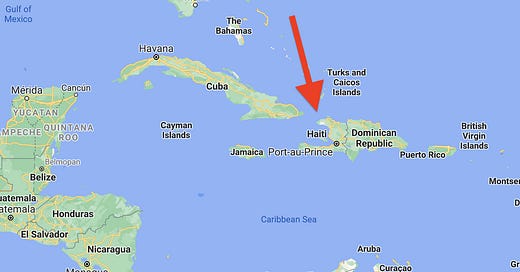Over the weekend, the Biden administration granted Temporary Protected Status (TPS) to Haitian immigrants in the United States.
TPS is a special immigrant status that is granted by the government in circumstances when it would not be ethical (or sometimes even logistically possible) to deport people to the country due to political and social conflict, environmental disaster, or other situations. It also allows immigrants in the country legally to stay longer than may normally be allowed.
One of the underlying principles of TPS is that deportation should not be a death sentence.
In a press release from Saturday, May 22, 2021, the Department of Homeland Security Secretary Mayorkas said,
“Haiti is currently experiencing serious security concerns, social unrest, an increase in human rights abuses, crippling poverty, and lack of basic resources, which are exacerbated by the COVID-19 pandemic. After careful consideration, we determined that we must do what we can to support Haitian nationals in the United States until conditions in Haiti improve so they may safely return home.”
Haiti is a country in the Caribbean with about 11 million people (about as many as Ohio) and shares the island of Hispaniola with the Dominican Republic.
Just a month ago, Reuters reported that Jovenel Moïse’s government has allied itself with violent criminal gangs to maintain its grip on power and to suppress dissent. Two months ago, Vice News also published a short documentary showing the growing political unrest in the country.
Mother Jones journalist Fernanda Echavarri describes that that 18-month extension of TPS could benefit as many as 150,000 Haitians living in the United States.
Currently 15,511 Haitians are facing deportation in the courts. TPS may benefit Haitians currently facing deportation in the courts, but may also benefit other Haitians who have already received a deportation order but have not yet been deported. (This data can be cited to this webpage.)
Slightly more than half — or 53% — of Haitians with pending deportation cases have an attorney on record; the other 47% have no attorney on record.
The majority — 9,153 or 60% — of Haitians facing deportation are assigned to courts in Florida. New York (1,187) and Massachusetts (1,140) also have significant numbers of Haitians with pending deportation cases.
So far in FY 2021, 153 asylum cases filed by Haitian nationals have been decided; 88% were denied by immigration judges, on par with an 89% denial rate for the 561 Haitian asylum applications in FY 2020. (Data can be cited to this webpage.)
In FY 2019, the last year for which TRAC has complete data, 674 Haitian migrants were deported. This is down from an historic high of 5,567 in FY 2017. (This data can be cited to this webpage.)
Visit AustinKocher.com for more short articles about the current state of the US immigration system or follow me on Twitter here for news, policy, and data about immigration.







A couple of weeks ago in a webinar, Nora Phillips of Haitian Bridge Alliance reported that the U.S. had sent 29 flights filled with "deportees" back to Haiti under Biden, most of them citing Title 42. How does this gibe with Mayorkas' "careful consideration" of the situation there?